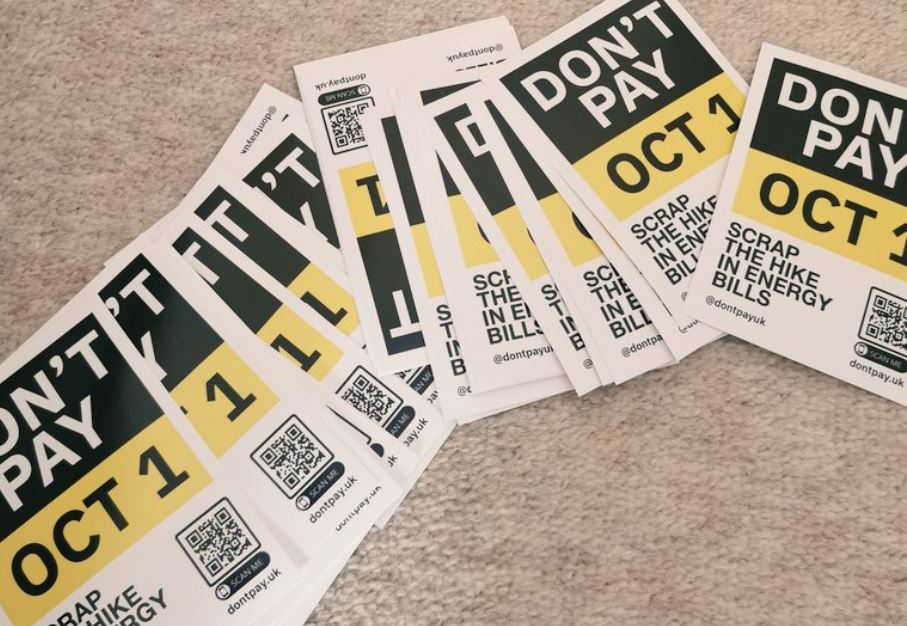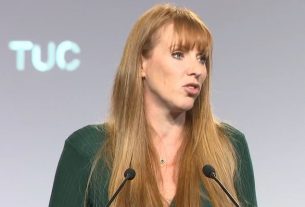Almost half of Britons fear there will be riots if the government does not provide more help with the cost of living crisis as energy bills are forecast to surge past £4,200.
More than half of the country (55%) believe an organised campaign not to pay energy bills is justified, according to the Independent, while more than a quarter believe rioting will be “an effective way of securing additional help” from the government.
New figures released today predict UK households’ average energy bills will be £4,266 from January, meaning monthly bills of £355 from the start of 2023. It is more than double the £164 monthly charge currently being paid. Households are already bracing for October’s energy price cap hike – expected to be more than £3,500 per year – with the figure due to be announced at the end of this month.
No 10 rules out emergency budget to help with energy bills price hike
Calls for an emergency budget to address what former prime minister Gordon Brown called an imminent “humanitarian crisis” have gone unheeded by the government. Downing Street today ruled out any meeting between Boris Johnson, Liz Truss and Rishi Sunak to put new measures in place to help families cope with the ever worsening cost of living crisis.
Martin Lewis, the “moneysavingexpert”, called January’s predicted hike “tragic news” on Twitter and added: “Action is needed now. The zombie govt needs [to] wake up sooner than 5 Sept [when Johnson’s successor is announced].
“These amounts are unaffordable for millions,” Lewis posted, saying the January forecast “equates to 45% of the full new state pension, and a higher proportion of the old one.”
26% of Britons believe rioting will be effective
A poll for the Independent by Savanta has found that 7% of consumers are already refusing to pay their bills in full with a further one-in-five (19%) considering non-payment. Only 35% said they think a non-payment campaign is unjustified compared to the 55% who think it is.
The number of people saying they would be ready to join protests against energy companies is growing and almost one-in-three (29%) believe civil unrest would be justified in the campaign for change.
A quarter of people – 26% – think rioting will be an effective way of getting more help to pay their energy bills, while 44% believe rioting is likely in the coming months.
Don’t Pay UK said almost 100,000 people have already signed their pledge to cancel energy bill direct debits from October 1. More than 30,000 people have come forward to organise local groups to further Don’t Pay UK’s campaign.
Action plan is needed today
Energy consultants Cornwall Insight said January’s price cap rise, which will take average bills over £4,200 – £650 more than the previous estimate – is due to Ofgem’s decision to allow the price cap to be changed every three months rather than twice a year. The price cap in October 2021 – which lasted six months until April 1 – was £1,400.
Energy sector regulator Ofgem said the volatility of the market means forecasts for prices are unreliable and asked for “extreme caution” to be “applied to any predictions for the price cap in January or beyond.”
Just last week Cornwall Inisght predicted January’s energy price cap would rise to £3,615.
Earlier this year the government announced that £400 will be paid to all households over six instalments to help with rising bills. The poorest and most vulnerable households could receive up to £1,200 from the government but, as Martin Lewis pointed out, January’s “rise alone swallows up” the payments which “will leave many people destitute.”
Lewis said an “action plan is needed today” and called on the Conservative leadership and wannabe PMs to “come together for the good of the nation rather than personal point scoring [between Tory candidates in the election campaign].
“People’s livelihoods, mental well being & in some cases very lives depend on this,” wrote Lewis.
A survey for the Sunday Telegraph found 55% of people asked believe the government could do more to help with the cost of living crisis but is choosing not to.
Heatwave amber warning
Meanwhile the Met Office has issued another extreme temperatures amber warning for parts of England and Wales.
Temperatures are forecast to hit 35C during the four day spell from Thursday to Sunday and the Met Office warning follows the amber alert already issued by the UK Health Security Agency for southern and central England.
In July, a red warning was issued for the first time in British history as a heatwave brought record temperatures above 40C.




